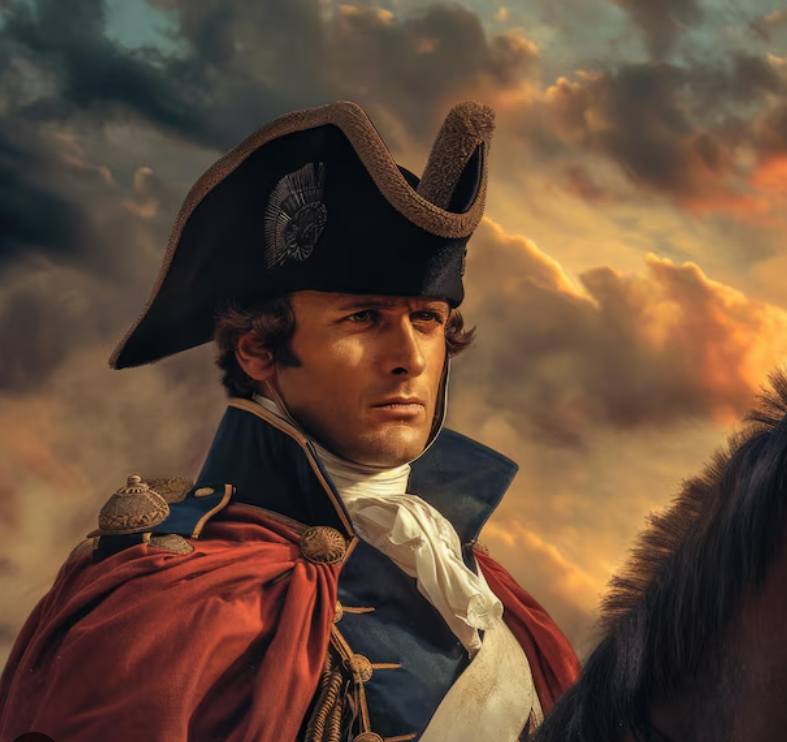
In the realm of war and business, strategy is the ultimate game-changer. History has witnessed brilliant military commanders and visionary business leaders whose ability to outmaneuver their opponents and foresee the future has left an indelible mark on society. In this article, you’ll learn the secrets behind the core principles and successes of history’s greatest strategists and inspire you to develop your own strategic mindset, whether on the battlefield of life or in the boardroom. (Estimated reading time: 12 minutes)
“Strategy is the economy of forces.”
— Carl Philipp Gottfried von Clausewitz
In an increasingly complex, interconnected, and rapidly evolving world, the ability to think strategically and anticipate the challenges of tomorrow have become essential skills for individuals and organizations alike.
I’ve always been the type to have a plan and a strategy for everything, so I find it hard to grasp how some folks can just “wing it” in life. I understand that life can be unpredictable and that adaptability is critical, but I believe having a solid strategy helps us stay grounded.
Embracing spontaneity in your youth can be a smart approach, especially when done with purpose. You have plenty of time to explore and discover what suits you best and who you aspire to become. However, once you gain that insight, committing to a solid strategy is important.
After all those years of trying different things, I don’t believe it’s wise to dive into life’s challenges without a clear idea of what to expect, just hoping everything will fall into place. The concept of embracing uncertainty and going with the flow has been idealized, while careful planning and strategies have often been overlooked.
I think the greatest strategists and planners always allow for some flexibility in their approach. This adaptability is a crucial aspect of their strategy. Much like chess players, they have specific tactics in mind to gain an advantage, but they remain agile in applying them, responding to their opponents’ unexpected moves.
Whether you are a business leader seeking to navigate the turbulent waters of a rapidly changing market, a policymaker grappling with the geopolitical challenges of the 21st century, or a person looking to chart a course for personal and professional success, the principles of strategic thinking can be a powerful tool in your arsenal. Developing a life strategy will provide direction and enhance your resilience, helping you bounce back from setbacks more effectively.
By unraveling the minds of history’s greatest strategists, you’ll feel empowered to develop your own strategic mindset, whether in social interactions or the boardroom.
The importance of strategy in history

Across the history of human civilization, strategy has been the critical factor in the rise and fall of empires, the success of visionary leaders, and the evolution of various industries. Whether on ancient battlefields or in today’s corporate boardrooms, the skill to devise and execute a winning strategy has been the hallmark of the most influential figures in history.
At its core, strategy organizes and guides actions to reach a particular objective. It requires thoroughly examining the environment, recognizing both advantages and disadvantages, predicting adversaries’ actions, and executing a tactical approach that surpasses that of rivals. The greatest strategists throughout history have shown an uncanny ability to look past immediate obstacles, think several steps ahead, and adapt their approach as circumstances evolve.
The impact of strategic thinking is evident in the shaping of nations, the outcome of wars, and the disruption of entire industries. From the ancient wisdom of Chinese general Sun Tzu to modern-day tech moguls, the core principles of strategy have stayed surprisingly consistent despite how tools and battlegrounds have changed.
What makes someone a good strategist?
An astute strategist embodies several roles: they are an anthropologist, delving into cultural influences; a sociologist, exploring the impact of society on individuals; a psychologist, striving to grasp the complexities of the human mind and our behaviors; an analyst, proficient in deciphering data to reveal underlying patterns in our actions; and a creative thinker, passionate about storytelling and motivated by the potential to transform people’s thoughts, emotions, or actions through their inspiring endeavors.
To be a good strategist, you must possess a natural ability for problem-solving, effortlessly pinpointing the most effective, creative, and innovative solutions to challenges while achieving goals. Effective strategists are attentive listeners with strong empathy, allowing them to understand others’ perspectives and gain valuable insights.
Additionally, they are skilled communicators who can distill complex ideas into clear messages. When these qualities are combined with extensive knowledge and expertise in their field, they can become strategic masterminds.
Here are five key traits that the best strategists usually possess:
1. Natural curiosity: The greatest strategists consistently strive to grasp the reasons behind events and the motivations behind people’s actions.
2. Great communication skills: These are essential for top-notch strategists. They express their ideas and genuinely hear what others have to say. This attentive listening helps them uncover valuable insights based on real human experiences, forming the basis for engaging stories.
3. Observing with empathy and compassion: Often driven by our natural curiosity, strategists are keen observers of people. They understand that we gain deeper insights from watching human behavior rather than just hearing their words.
4. Innovative problem-solving: Exceptional strategists are imaginative individuals who enjoy and eagerly engage with creative content in various formats, including books, movies, theater, performances, narratives, articles, and podcasts, among many others.
5. Embracing a positive outlook: As strategists, we thrive on exploring possibilities and seizing opportunities. Exceptional strategists are not only intrigued by the challenge of tackling complex and multifaceted issues but also invigorated by the potential that lies ahead.
6 of history’s greatest strategists and what we can learn from them

In the realm of war and business, strategy is the ultimate game-changer. History has witnessed the towering achievements of brilliant military commanders and visionary business leaders whose ability to outmaneuver their opponents and foresee future patterns has left an indelible mark on society.
These are six of history’s greatest strategists and the core principles that made them successful.
1. Sun Tzu: The master strategist behind “The Art of War”
Sun Tzu is a monumental figure among the great strategists, with his influence echoing across the ages. Born in ancient China during the tumultuous Warring States era, his groundbreaking book, “The Art of War,” has emerged as a timeless masterpiece, admired and analyzed by military leaders, business executives, and strategic thinkers everywhere.
Sun Tzu’s brilliance is evident through his skill in distilling the essence of strategy into a series of principles that remain relevant across ages and cultures. His core tenet, “The supreme art of war is to subdue the enemy without fighting,” perfectly summarizes the heart of strategic thought—the ability to outsmart and outmaneuver adversaries instead of depending only on brute force.
At the core of Sun Tzu’s philosophy lies the significance of grasping the terrain, whether literal or metaphorical. He emphasizes the need to gather comprehensive intelligence, anticipate the adversary’s moves, and exploit their weaknesses. This approach allows the strategist to set themselves up for victory, capitalizing on their strengths while reducing their weaknesses.
Sun Tzu’s impact reaches well beyond warfare; his teachings have found applications in business, politics, and personal growth. His focus on adaptability, deception, and the significance of timing has made his work an essential guide for those looking to gain a strategic advantage in their respective fields.
2. Machiavelli: The political strategist of Renaissance Italy
In the history of strategic thinking, few figures stand out as prominently as Niccolò Machiavelli, the Italian philosopher and political theorist of the Renaissance. His influential book, “The Prince,” has established itself as a key reference for understanding the nuances of governance and the use of power.
Machiavelli’s approach to strategy was grounded in his keen insight into human behavior and the realities of political life. He recognized that in the pursuit of power, the ends often justify the means and that a leader might need to make difficult, even morally questionable decisions to achieve their objectives.
Machiavelli’s teachings center around the idea that an effective ruler must be willing to set aside conventional moral values to preserve their power and ensure stability. He advocated the strategic use of deceit, the ruthless removal of competitors, and the cultivation of a public persona that conveyed strength and authority, even if the reality was different.
Machiavelli’s ideas have sparked considerable debate and controversy, yet his impact on statecraft and strategic thought is clear. His understanding of power dynamics, the value of being adaptable, and the need for a pragmatic approach have influenced political leaders and military strategists for many generations.
3. Napoleon Bonaparte: The military genius of the 19th century
Few figures stand out as prominently throughout military history as Napoleon Bonaparte, the French emperor whose exceptional strategic skills and remarkable achievements on the battlefield reshaped European history. His prowess in warfare stemmed from a sharp mind, relentless determination, and a deep understanding of the principles of strategy.
At the heart of Napoleon’s approach was his knack for outsmarting his opponents, leveraging the agility and quickness of his troops to exploit their weaknesses. He excelled in taking the offensive, always aiming to take control and set the pace of the battle. His skillful integration of different military branches, expertise in logistics, and talent for motivating his soldiers played a significant role in his impressive series of victories.
Napoleon’s genius wasn’t limited to military tactics; he was also a master of political strategy. He skillfully navigated diplomacy, formed alliances, and utilized propaganda to advance his ambitions. Recognizing the significance of public opinion and the power of symbolism, he meticulously crafted an image of himself as a larger-than-life figure destined to transform the world.
Napoleon’s legacy as a brilliant strategist and military leader remains undiminished despite his ultimate downfall. His principles of warfare, emphasis on morale and leadership, and his readiness to innovate have left a lasting impact on the study and practice of strategy. Today, military academies and business schools examine the Napoleonic model, aiming to extract valuable lessons that can be applied to modern challenges.
4. Genghis Khan: The conqueror who revolutionized military strategy
In the pantheon of history’s greatest strategists, Genghis Khan is a towering figure, renowned for his unmatched legacy as a military leader and empire creator. Hailing from the rugged terrains of Central Asia, his remarkable strategic mind united the Mongol tribes into a formidable military force that traversed the known world, leaving an indelible mark on the course of human civilization.
Genghis Khan’s strategy was rooted in a keen awareness of the importance of mobility, flexibility, and cultivating a cohesive, well-trained fighting force. He understood that the conventional, static armies of his times couldn’t effectively face the swift and agile Mongol cavalry, prompting him to transform the principles of warfare.
Genghis Khan’s strategic brilliance extended far beyond just military tactics. He excelled in logistics, leveraging extensive trade routes and communication networks to keep his armies well-supplied and ready to strike with devastating speed and precision. He recognized the value of intelligence-gathering, employing a system of spies and scouts to collect vital information on the strengths and weaknesses of his adversaries.
Genghis Khan’s most remarkable strategic triumph might be his talent for inspiring and motivating his troops. He built a deep sense of loyalty and camaraderie among his soldiers, creating a collective purpose and instilling a belief in their invincibility. This, along with his readiness to adapt and innovate, enabled the Mongol forces to triumph over even the toughest opponents.
5. Elizabeth I: The strategic queen who shaped England’s history
Few historical figures have demonstrated strategic prowess like Queen Elizabeth I. Throughout her lengthy and often tumultuous reign, Elizabeth skillfully maneuvered through a tangled landscape of political machinations, religious conflicts, and military dangers, establishing herself as one of British history’s most influential and accomplished monarchs.
Elizabeth’s remarkable strategic insight stemmed from her ability to sense the changing power dynamics, predict her opponents’ actions, and react with skill and agility. She was a master of diplomacy, leveraging her wit, charm, and deep grasp of human nature to build alliances, mitigate threats, and project a strong and authoritative presence.
One of Elizabeth’s most celebrated strategic victories was her management of the Spanish Armada, the enormous naval fleet that King Philip II of Spain dispatched to invade England. Instead of confronting the Spanish directly, Elizabeth chose a more sophisticated approach. She relied on her extensive network of spies and informants to collect vital intelligence. Then, she sent her own fleet into action with a series of clever maneuvers that ultimately resulted in the Armada’s downfall.
Elizabeth’s strategic prowess was also evident in her other policies. She was an adept economic planner, leveraging her authority over England’s trade routes and resources to create a robust and prosperous nation. By heavily investing in the exploration and colonization of the New World, she understood the significance of these emerging frontiers. Additionally, she nurtured the development of a thriving merchant class that would serve as the foundation of England’s economic power.
6. Winston Churchill: The mastermind behind Britain’s victory in World War II
Winston Churchill is an iconic British prime minister who led his country through the most tumultuous times of World War II. His well-honed strategic skills were developed amidst the turmoil of war as he navigated a complex web of political, military, and diplomatic challenges to ensure Britain’s victory over the Axis powers.
At the heart of Churchill’s approach was his unwavering resolve and his ability to inspire his fellow citizens to fight against seemingly insurmountable odds. He was keenly aware of the impact of powerful speech and the necessity of keeping spirits high, crafting stirring rhetoric that united the British public in their mission and fostered a spirit of defiance during tough times.
Churchill also excelled in military strategy, drawing upon his extensive historical knowledge and sharp insight into the intricacies of warfare. He grasped the significance of forming strong alliances, forging a close partnership with the United States, and managing the complex relationships with other Allied nations.
Churchill was notably a master at adaptability, ready to shift his tactics and focus as the war evolved. He quickly sensed the changing landscape of modern warfare, adopting new technologies and innovative approaches to combat. He also showed courage in making tough, sometimes unpopular choices in his pursuit of victory.
Lessons from history’s greatest strategists

History is filled with extraordinary strategists who have shaped the course of civilizations, industries, and individual lives. But what essential lessons can we learn from their experiences? What fundamental principles contributed to their success, and how can we use these insights to tackle our own challenges in life and work? Here are three key takeaways:
1. Understand the terrain.
Throughout history, the most brilliant strategists have placed great importance on gathering information, predicting their rivals’ actions, and exploiting their vulnerabilities. They understood that true success comes not from force but from the ability to outsmart and outmaneuver their competitors.
2. Learn to adapt and improvise.
The most effective strategists, like Genghis Khan with his innovative warfare tactics and Elizabeth I with her agile diplomacy, have always dared to defy conventional norms, explore new methods, and adapt their strategies in response to fluctuating situations.
3. Inspire your team by creating a shared sense of purpose.
Strategic titans highlight the significance of leadership, team spirit, and fostering a collective sense of purpose. From Napoleon’s talent for motivating his soldiers to Churchill’s rousing speeches, these masterminds have always known that the human element is just as crucial to achieving success as any tactical or technological edge.
Ultimately, the true power of strategic thinking lies in its ability to empower us to shape our destinies, rise above the constraints of our circumstances, and leave an indelible mark on the world around us. By embracing the lessons of history’s greatest strategists, you can unlock your potential and transform how you navigate the challenges you face in your life and the world.
All my best on your journey,
Seline

Questions for you: Which of history’s greatest strategists inspires you the most? What is one tactic of quality that you admire and apply in your own life?
Did you like this post? Sign up below, and I’ll send you more awesome posts like this every week.

Thank you for sharing this with us! You packed so much into this that it is going to take me several readings, I think, to process it all. I am bookmarking this and will come back to it soon!